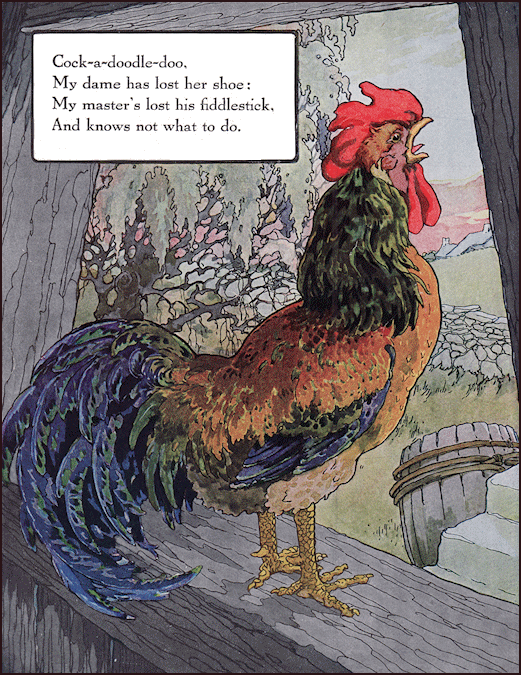
Songs for February
|
|
The Sugar-Plum Tree
|
Have you ever heard of the Sugar-Plum Tree? 'Tis a marvel of great renown! It blooms on the shore of the Lollipop sea In the garden of Shut-Eye Town; The fruit that it bears is so wondrously sweet (As those who have tasted it say) That good little children have only to eat Of that fruit to be happy next day. When you've got to the tree, you would have a hard time To capture the fruit which I sing; The tree is so tall that no person could climb To the boughs where the sugar-plums swing! But up in that tree sits a chocolate cat, And a gingerbread dog prowls below— And this is the way you contrive to get at Those sugar-plums tempting you so: You say but the word to that gingerbread dog And he barks with such terrible zest That the chocolate cat is at once all agog, As her swelling proportions attest. And the chocolate cat goes cavorting around From this leafy limb unto that, And the sugar-plums tumble, of course, to the ground— Hurrah for that chocolate cat! There are marshmallows, gumdrops, and peppermint canes, With stripings of scarlet or gold, And you carry away of the treasure that rains As much as your apron can hold! So come, little child, cuddle closer to me In your dainty white nightcap and gown, And I'll rock you away to that Sugar-Plum Tree In the garden of Shut-Eye Town. |
![[Illustration]](http://www.gatewaytotheclassics.com/gold/books/winter/aesop/winter_aesop_zpage037.gif)